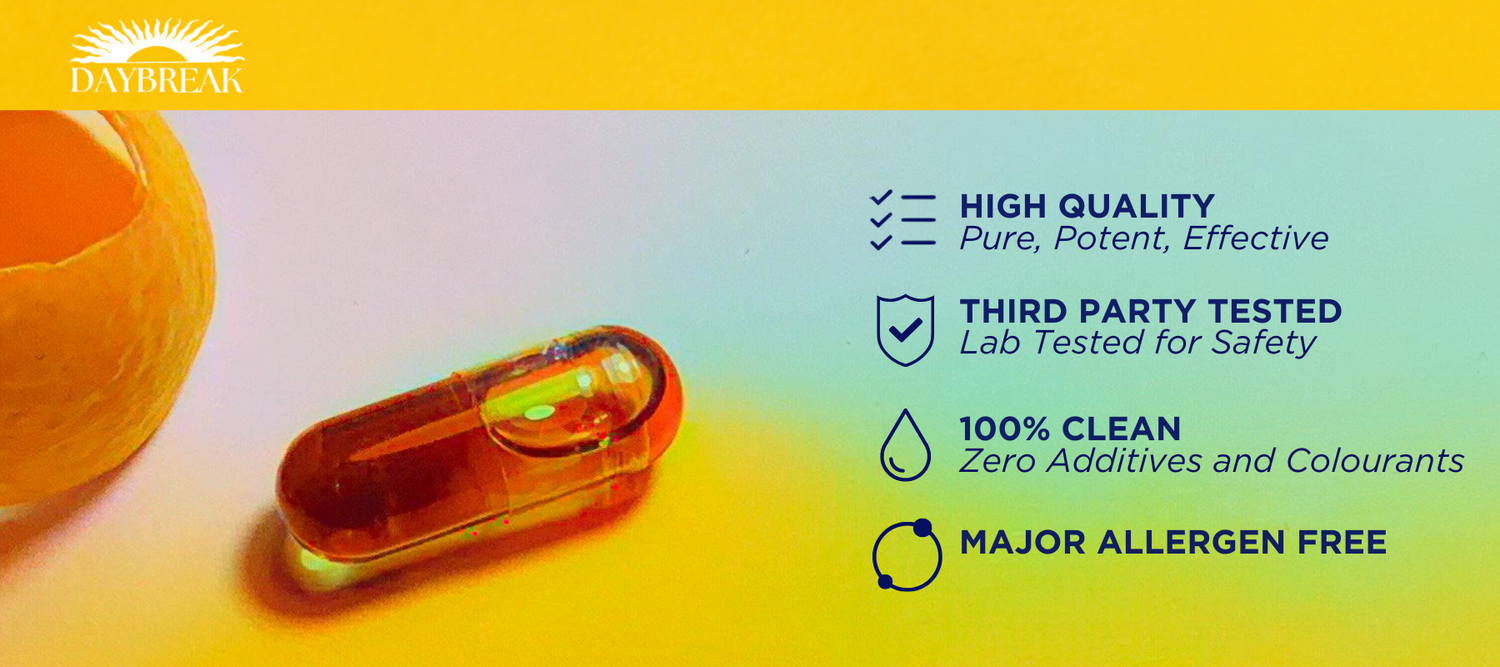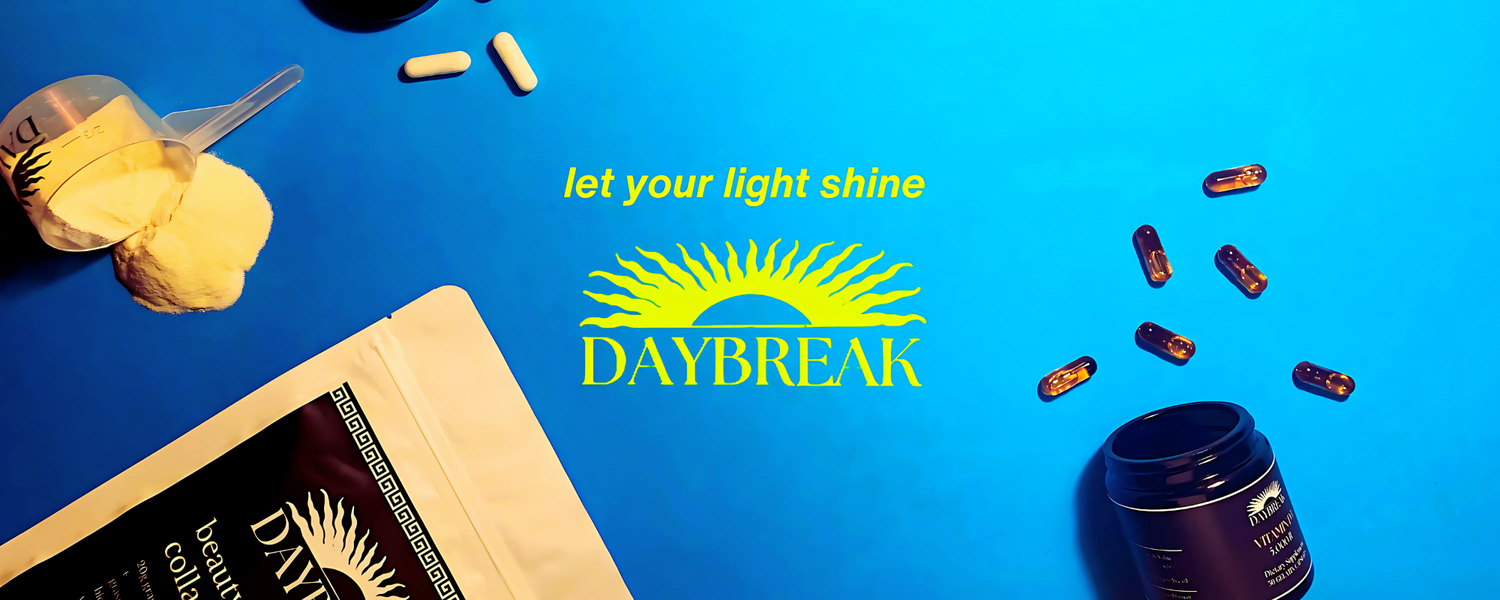1
/
od
6
High potency vitamin C with citrus bioflavonoid complex
High potency vitamin C with citrus bioflavonoid complex
Get the immune-supporting, antioxidant benefits of Vitamin C with natural citrus flavonoids
Vitamin C, with bioflavonoids from oranges, optimizes the beneficial effects of vitamin C by replicating the way it's found in nature – in the presence of flavonoids
Podatka o razpoložljivosti osebnega prevzema ni mogoče naložiti
 1,000 MG
1,000 MG
 GMO Free
GMO Free
 CB Complex
CB Complex
Specs:
Specs:
Ingredients: Ascorbic Acid, Fatty Acid Lipids, Citrus Bioflavonoid Complex & Cellulose Capsule
Manufacturer country: Switzerland
Amount: 60 capsules
Suggested use: As a dietary supplement take one (1) capsule per day, or two (2) for extra potency or as directed by your healthcare professional
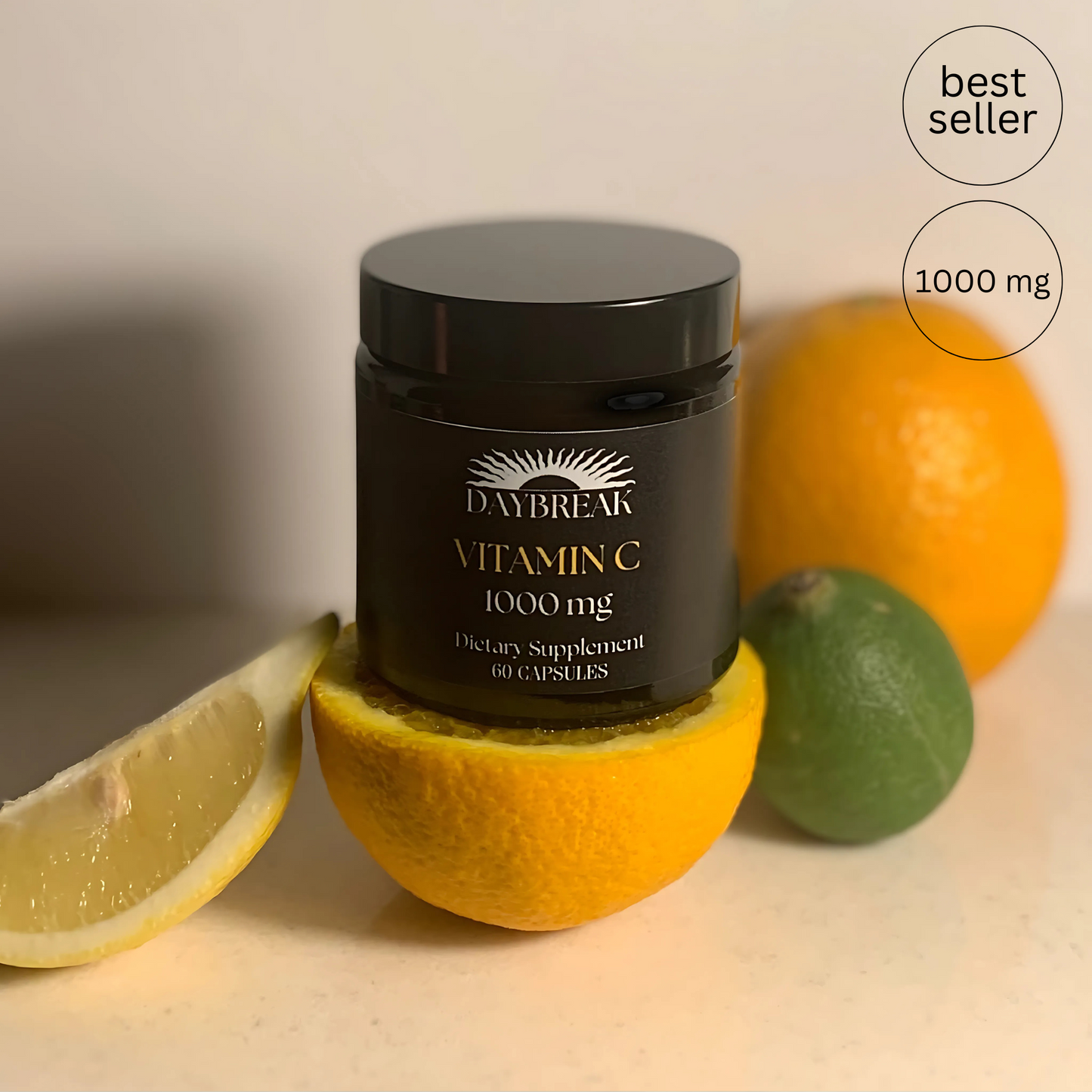
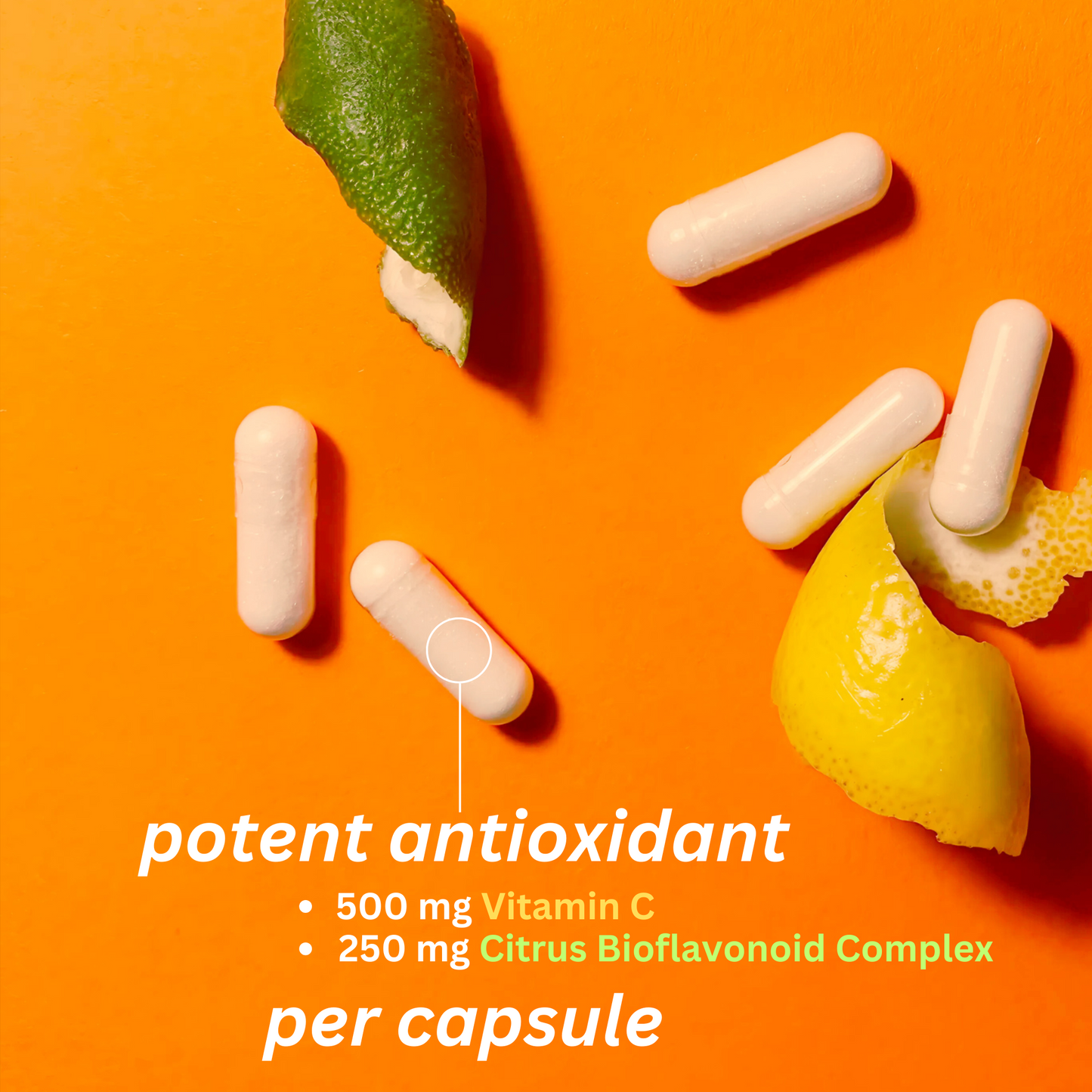
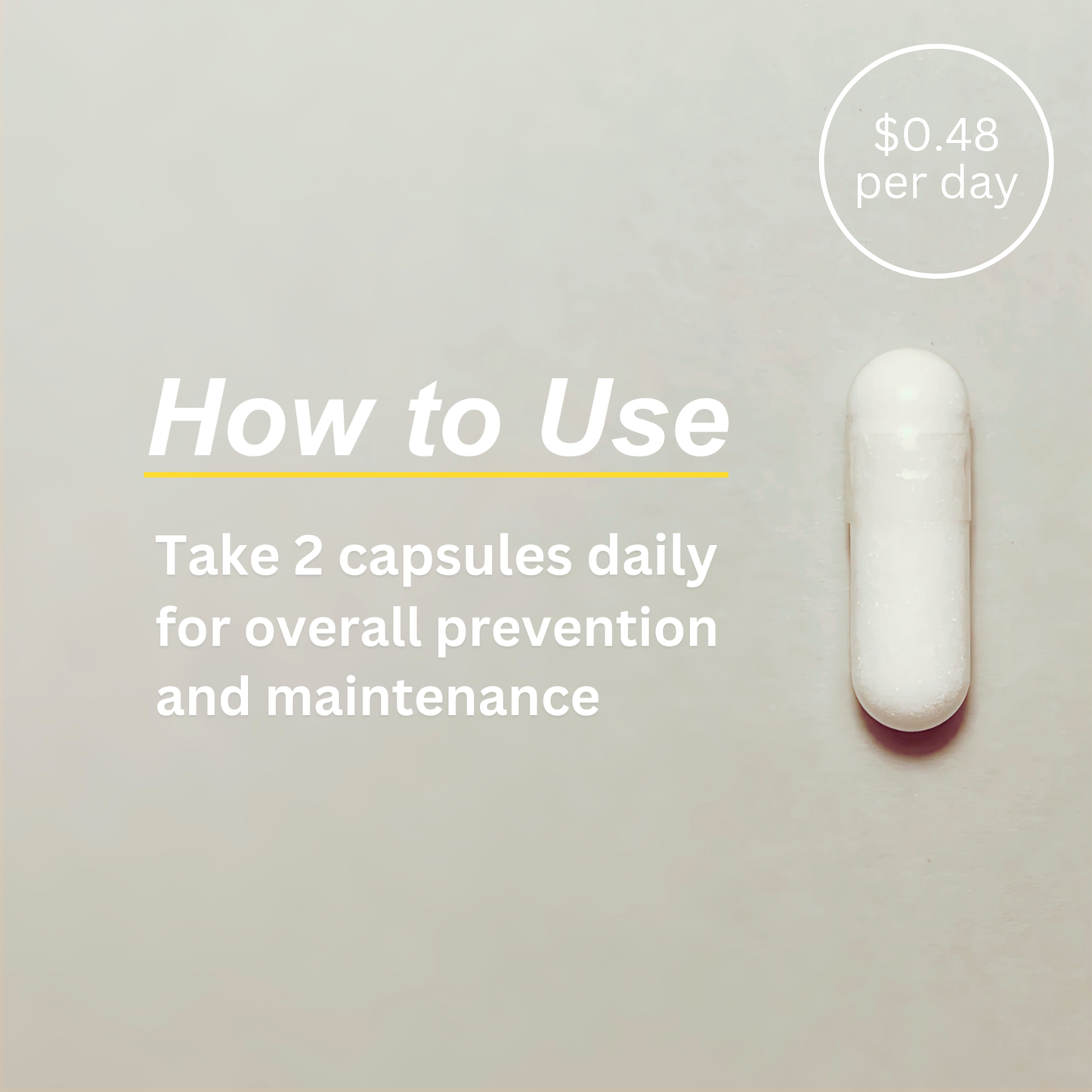

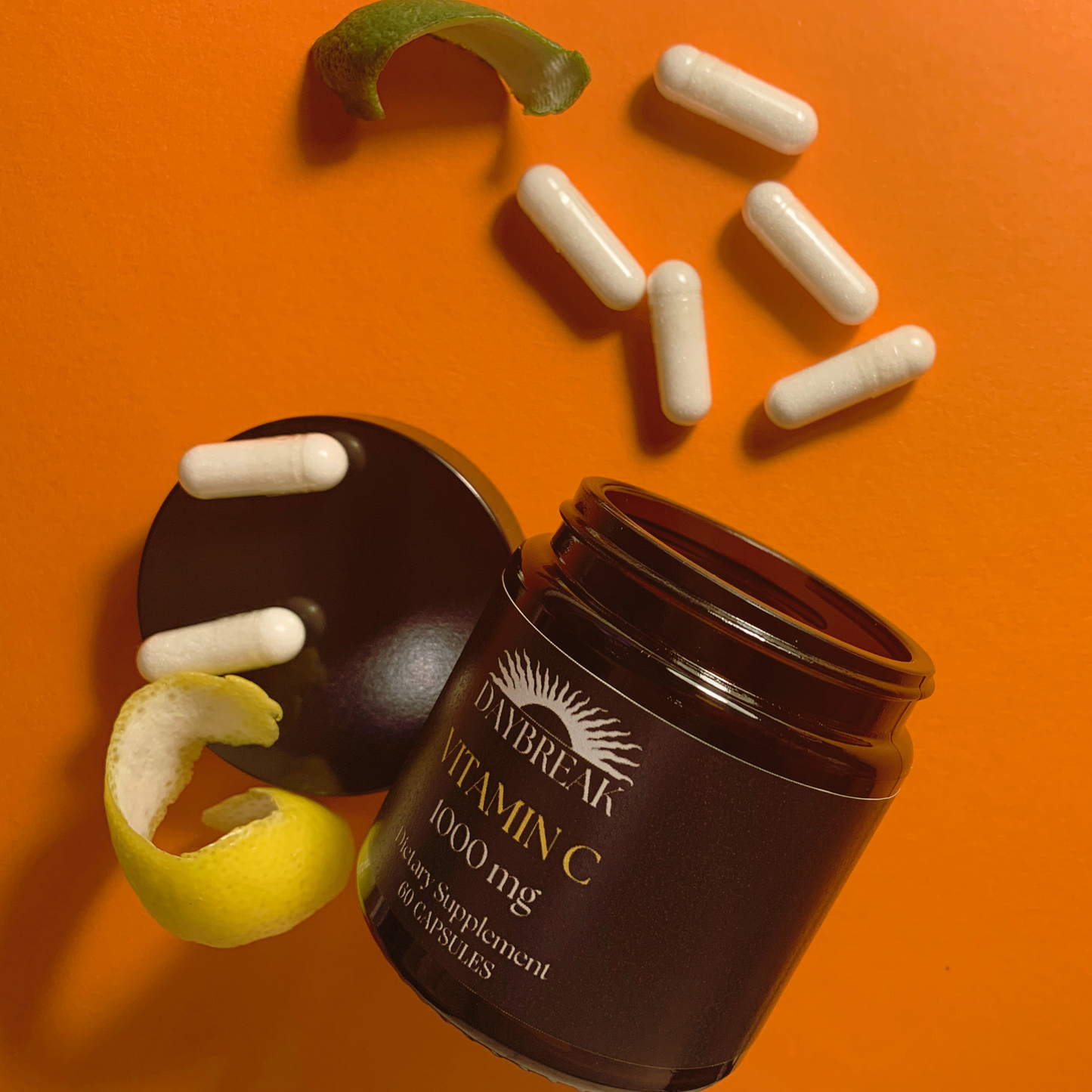
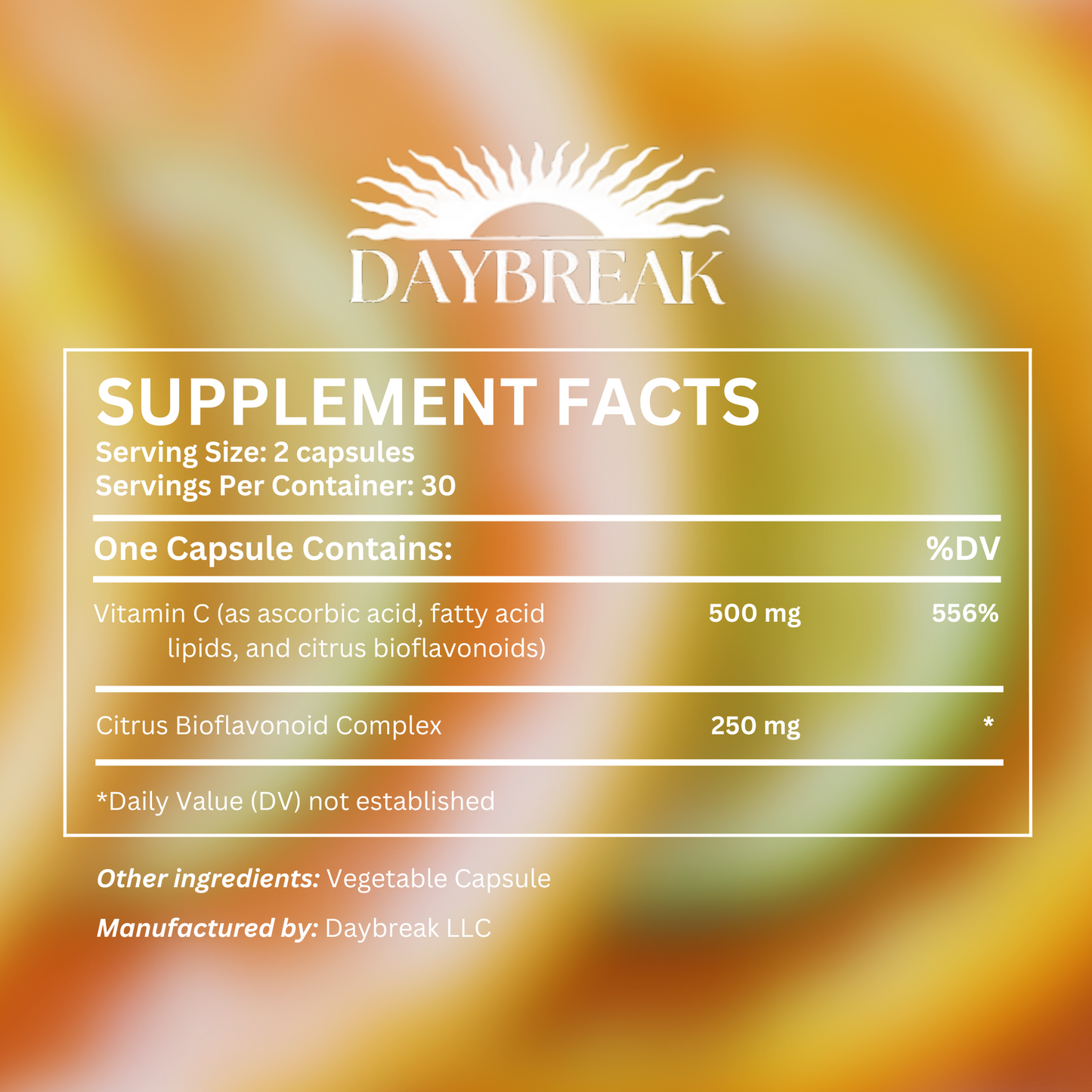

Vsebina, ki jo je mogoče strniti
Daybreak's vitamin C benefits
While you may typically think of vitamin C as a wintertime essential, this powerful nutrient supports your overall health every day. Vitamin C plays a key role in numerous bodily functions, including immune support, collagen production, and aiding liver detoxification.
Since the body cannot produce vitamin C, it must be sourced from either food or supplements.
Daybreak’s Vitamin C with broad spectrum bioflavonoid complex from 100% citrus sources combines ascorbic acid with naturally occurring citrus flavonoids. These flavonoids enhance the antioxidant power of vitamin C, helping to more effectively neutralize free radicals throughout the body.
Why is your vitamin C better?
This high-potency formula combines vitamin C, fatty acid lipids, and citrus bioflavonoids to optimize cellular uptake, enhance serum response, and support superior antioxidant activity. Each serving provides 1,000 mg of vitamin C—equivalent to the vitamin C content found in 15 oranges—ensuring maximum effectiveness in the body.
What on earth are citrus bioflavonoids and what are they doing in a vitamin C supplement??
Research has also demonstrated that citrus bioflavonoids can cross the blood-brain barrier and, in conjunction with the brain's ability to store vitamin C, may help support cognitive function and protect nerve health.
As potent cell-signaling agents, bioflavonoids are believed to facilitate healthy cell growth and regulate normal cell life cycles. They also stimulate detoxification enzymes, reduce vascular cell adhesion molecules, promote vasodilation, and support healthy platelet function, according to scientific studies. Additionally, bioflavonoids have been shown to positively influence the microbiome.
While both vitamin C and bioflavonoids offer a range of individual health benefits, their effects are significantly enhanced when taken together—just as they naturally occur. For instance, a study examining the combination of vitamin C and quercetin, a well-known bioflavonoid, revealed enhanced antiviral properties when used in tandem.
More information on citrus bioflavonoids we use are listed bellow.

Vitamin C drastically lowers stress and inflammation: 500-1500 mg of vitamin C decreased: Cortisol, adrenaline and markers of inflammation
Vitamin C drastically lowers cortisol: 1,000 mg / day dropped the stress hormone by over 35% after 2 months.
Vitamin C is released by the adrenal glands and becomes depleted during stress, but adding it back dampens this response.
Vitamin C megadosing completely prevents wrinkles: ~500-3,000 mg daily (human equivalent) made aged skin identical to youth.
Vitamin C is required to make collagen and:
Recovers cell proliferation and improves skin barrier function, for anti-aging the skin.
Vitamin C can even reduce anxiety:
1000 mg per day reduced it by 50%.
Vitamin C actually has incredible protective effects on the brain, and can even act as a calming neurotransmitter.
Vitamin C also improves motivation:
It increases the expression of the enzymes that make dopamine in the brain.
It is also required in the recycling of cofactors that help synthesize it.
This allows vitamin C to increase our output of dopamine.
Vitamin C is also highly protective against the common cold:
A few hundred mg of vitamin C reduces cold severity and duration substantially.
Immune cells require vitamin C to produce oxidants - which shred up bacteria and viruses.
C also helps mature our immune cells.

Bioflavonoids are used as an aid to enhance the action of vitamin C, to
support blood circulation, as antioxidants, and to treat allergies,
viruses, or arthritis and other inflammatory conditions.
Free Radical Neutralization: Citrus bioflavonoids, such as hesperidin, quercetin, and rutin, are powerful antioxidants that help neutralize free radicals in the body. This can help protect cells from oxidative stress and reduce the risk of chronic diseases like heart disease and cancer.
Anti-Aging Effects: By reducing oxidative damage to cells, these compounds may help slow down the aging process and improve skin health.
Immune System Support: Their anti-inflammatory properties also help support the immune system, reducing the risk of infections and boosting overall health.
Reducing Inflammation: Citrus bioflavonoids can modulate the body's inflammatory response, potentially reducing chronic inflammation. This may be beneficial for conditions such as arthritis, asthma, and inflammatory bowel disease.
Improved Blood Circulation: Hesperidin, a common citrus bioflavonoid, is known to improve blood vessel function, increase blood flow, and promote healthy circulation. It may help lower blood pressure and reduce cholesterol levels.
Protecting Blood Vessels: Citrus bioflavonoids may protect against the damage that leads to plaque buildup in arteries, potentially lowering the risk of atherosclerosis and heart disease.
Enhancing Heart Health: The combination of antioxidant and anti-inflammatory effects helps to support overall cardiovascular health and may reduce the risk of heart attacks and strokes.
Preventing Cancer Cell Growth: Preliminary research suggests that certain citrus bioflavonoids may inhibit the growth of cancer cells, especially in cancers like breast, prostate, and colon cancer. Their antioxidant and anti-inflammatory effects play a role in this protective action.
Supporting Chemotherapy: Some studies suggest that citrus bioflavonoids can enhance the effectiveness of chemotherapy while protecting healthy cells from damage.
